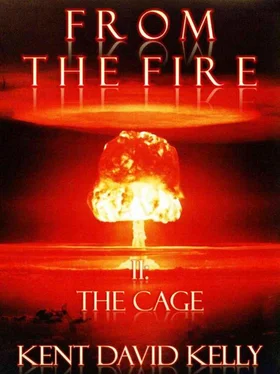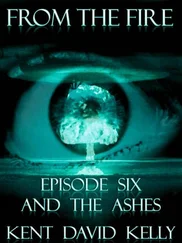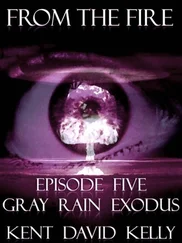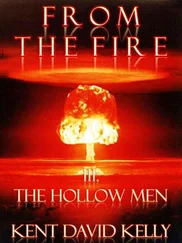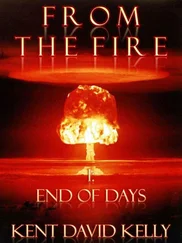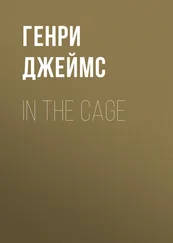Fifteen minutes or more had gone by, and still Mitch’s frequency gave only static. She turned down the volume so that she could concentrate.
She looked over what she had written at last, Mitch’s final completed message:
CAU TIO NCH ANN OTS
ECU RWE ARN SHE LTU
NDA UNT JEM MSH OUS
EUK NOW WHE REH AVE
CAR CAN TGO UTS OPH
COM EIN THR EEW EEK
IFU CAN LVE USHE SAL
IVE
Eventually, she puzzled out the entire message:
CAUTION CHAN NOT SECUR
WE AR N SHELT
UND AUNT JEMMS HOUSE
U KNOW WHERE
HAVE CAR
CANT G OUT
SOPH COME
IN THREE WEEK
IF U CAN
LVE U SHE
S A L
IVE
She spoke the words like a pleading chant, her voice growing higher and more desperate with the slowness of every questioned syllable.
“Caution. Chan. Channel? Channel not secure. We are in shelt… shelter? Under Aunt Jemm’s house. You know where? Have car. Can’t g… get out? Go out? Can’t get out. Soph, come in three week. Three weeks, if you can. Live? No. Love. Love you. She’s alive.”
Oh my. Oh.
“She’s alive.”
Sophie was crying and laughing, her hands pressed against her face in exhaustion and disbelief. Lacie Anna Saint-Germain, her own beloved daughter, was surely sitting there in Mitch’s arms. Lacie was alive.
II-5
THE DAY AFTER
(4-5/6-14)
She had fallen back asleep on the pile of clothing, with the radio still humming its static canting. If Mitch had been able to re-contact her, she would have heard it. But there had only been the humming sound of the ventilation ducts, the dripping of water, and the slow reliable surge of the latent generator in the back. She had hoped to dream of Tom, but nothing had come to her.
One of her hands was clutching a piece of paper. No, a photograph. She opened her fingers, smiling down at what she knew she was going to see.
Lacie. Smiling, an old Polaroid. One of Mitch’s antiques. He had snapped that on her third birthday.
Alive.
How had they survived? It must have been Tom’s warning call, when he had sent Mitch to grab Lacie from grandma’s. Sophie wondered what Mitch had said in his desperation, what he had done… why wouldn’t he take Sophie’s mother…
Don’t think of that.
Was anyone else with them? Sophie’s struggle for sanity was washing away, she had a purpose once again. A meaning. She needed to figure out how to mark time. Would the computer clock keep working without access to the Internet, if she powered it up? Could she make herself a water-clock of some kind with one of the water bottles and some thread, like she and Jolynn had done once for a junior high science project so long ago?
There had to be a way to measure time. She had three weeks to master the shelter and to read everything in the binders, to learn about the weapons, the generator fuel, salvaging cars, the protective suits that would be in the back, the gas masks, travel, all of it and everything.
And she would. She would. She would learn it all and then in three weeks she would open the vault door and go out of the shelter, because Lacie was out there and she was still alive .
Aunt Jemm’s house, that still meant nothing to her. She knew very little about Mitch’s extended family, only that he was close to everyone out as far as second cousins. He even had a genealogy website and a Civil War page, tracing back the Saint-Germains to the early Nineteenth Century. Remembering that, she wondered at what had happened between Tom and Mitch after their father’s funeral. Surely, being estranged from his own brother was a deep pain for Mitch. That, she suspected, was why “Uncle Itchy” had distanced himself from Lacie.
Mitch and Tom would never now know peace, would never reconcile. But Sophie swore then that she would make the time to get to know Mitch all over again, to make whatever amends she could. The past would be honored in its way, not as an apology for the way things had been and how that had gone wrong, but as a sacred remembrance for the world that ended, and the man she always loved.
There was more to think about, to question. Mitch had worked at Rocky Flats in his time with the government, assisting with coordination of the hazmat plutonium cleanup. He was always bragging about how he had managed to “permanently borrow” two of the suits after he left the Environmental Protection Agency and the Kaiser-Hill Company.
Was that why he and Lacie were still alive? The suits . What other precautions did he possess? Had he built a shelter of his own?
She would not wonder at these things, she would not let them gnaw at her. No. Her determination was building with every moment. She would learn all that needed to be done, she would learn where Aunt Jemm’s house was, she would drive there and Hell to anyone who would stand in her way. She would find her daughter who needed her most of all.
She kept herself busy, pacing, working. Thinking.
She had, with considerable pain, managed to lean the fallen shelving unit onto its narrower side. In doing so she had found the remnants of another binder. This one was untitled, and the dates on the printouts were as recent as October 2013. That must have been Tom’s last visit to the shelter, before the coming of winter had forced him to close everything down.
Perhaps. But one particular point of that did not make sense. The snow-closure gate had still been chained in the up position. Tom had meant to come here, one last time. She remembered their worst fight, last Halloween, and started to piece together what might have happened.
We fought about him coming up here and he left on long-term assignment in Maryland and Virginia the very next day. A kiss and a goodbye to Lacie, but not for me.
“There’s no reason for that to haunt you,” said Sophie. “Forgive. Love.” Her voice was the calmest she had heard it in a very long time.
She sat at the work table by the radio, which she decided to turn off for awhile. Filling her Thermos with water, she started to read the untitled binder and its riddling miscellany.
The first printout was about submachine guns. Tom had a very clear and precise sequence of events listed out for handling the weapons. One, brace the extension stock and remove the ammunition clip. Two, check twice to make sure the clip was absolutely empty. Then cleaning, then safety, loading, bracing, aiming, sweep-firing, point firing…
She stopped reading. Nothing there was useful, not yet. But now that she knew her daughter was surely out there, she was ready to think extraordinary thoughts. Yes, she would learn how to use not only the submachine guns, but the hunting and assault rifles as well.
Yes, she could — if she was going to be raped or taken prisoner. Or to protect her daughter. She could kill if she had to.
The next printout was a crude Word dump of Tom’s own unfiltered notes. It was not procedural, but rather moral in its rambling. It was something about which weapon was best for outside defense, which for shelter defense, which for recon, and which for hunting. It was titled “For Soph.” After this were notes on how best to kill people in a merciful manner, how best to kill men who were leading other men into battle in the bloodiest way possible in order to break the others’ spirits, and how to kill a family member in their sleep.
“No.”
Those pages were ripped out and dropped onto the floor.
Next was a Westword story about Mehrdad Farhadi, the Iranian scientist who had set up a microphone in Denver International Airport last August and announced to everyone that he was a nuclear physicist, that he had been working on nuclear weapons for the Iranian government and that he was surrendering himself to the American people as a matter between himself and his God.
Читать дальше
